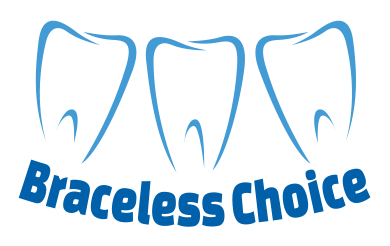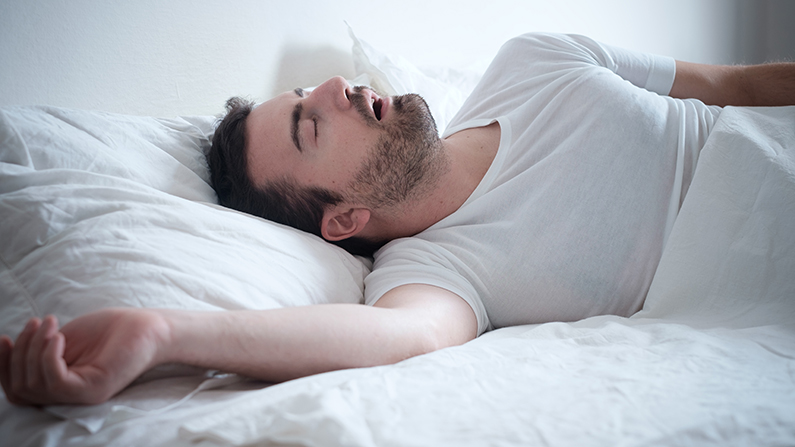If you’re waking up in the morning feeling tired, experiencing morning headaches or suffering from poor concentration or memory loss due to fatigue, or if your partner is constantly complaining about your snoring, you may be suffering from Obstructive Sleep Apnoea (OSA).
You’re not alone. OSA is incredibly common among older adults, with prevalence estimated to be up to 50% depending on age and gender. It affects significantly more men than women, and becomes more likely as you age.
However, even though OSA is common, it does not mean that it isn’t serious. People with OSA have an increased risk of motor vehicle accidents and high blood pressure, and may have an increased risk of heart attack and stroke. So it’s worth seeking diagnosis and treatment before it becomes serious.
What is Obstructive Sleep Apnoea (OSA)?
Sleep apnoea is a condition whereby you stop breathing during sleep, preventing flow of oxygen to the brain for short periods. What happens is that the walls of your throat come together while you sleep, blocking off your upper airway. You stop breathing briefly (generally between ten seconds and up to one minute) until your brain registers the drop in oxygen levels, and sends a small wake-up call. This causes you to rouse slightly, open your upper airway, possibly snort and gasp, and then drift back to sleep almost immediately. Often, you won’t even realise you are waking up.
Unfortunately, OSA has detrimental effects on sleep-quality, health, and overall quality of life. It increases the risk of obesity, high blood pressure, stroke, heart attack, type-2 diabetes, depression, impotence, mood disorders, and motor vehicle and industrial accidents.
Often, OSA is either not recognised or simply diagnosed as ‘mild’ and therefore not worth treating. The problem with this is that sleep apnoea can have drastic effects on your long-term health, and mild sleep apnoea can be easily treatment with an oral appliance, which can prevent it from becoming more severe. Therefore, no degree of snoring is healthy and should never be ignored.
What causes sleep apnoea?
- Overgrowth of the structures existing in the airways
- Collapse of the structures inwards causing blockage during the breathing
- Limited size of the airway dimensions due to poor facial growth or development
- Poor muscle tone or problem with the nerves or brain controlling muscle activity resulting in the airway blockage
- General health issues impacting on breathing such as asthma, allergies and obesity
How do I know if I have sleep apnoea?
If you are experiencing any of the following symptoms, it is worth discussing your concerns with your GP.
- Snoring
- Episodes of gasping, snorting or choking during sleep
- Excessive daytime sleepiness, fatigue or lethargy
- Lack of energy and endurance
- Falling asleep or needing to have a nap during the day
- Disturbed or restless sleep (OSA sometimes causes insomnia)
- Poor memory and concentration
- Morning headaches
- Dry mouth or sore throat upon waking
- Irritability, depression, anxiety, mood and behaviour changes (including ADHD in children)
- Increased frequency of urination during the night
- Rapid weight gain or difficulty in losing weight
After discussing your symptoms, your GP will complete a sleep evaluation and may refer you to a specialist sleep physician where you may be scheduled for an overnight sleep study at a sleep facility or a home sleep apnoea test. The physician will interpret the data from your sleep study to make a diagnosis.
How can sleep apnoea be treated?
CPAP
The most common treatment for sleep apnoea is continuous positive airway pressure (CPAP) therapy. The CPAP machine keeps your airway open by providing forced air through flexible tubing. CPAP therapy requires you to wear a mask as you sleep. Although CPAP therapy is effective, some people are unable to adhere to it. In some severe cases of sleep apnoea, upper airway surgery may be another treatment option.
Oral appliances
Specialist dentists can provide alternative, less obtrusive option to CPAP using an oral appliance therapy for the treatment of obstructive sleep apnoea, snoring and grinding in adults. A custom-fit Mandibular Advancement Splint (MAS) is an effective treatment that prevents the airway from collapsing by supporting the jaw in a forward position.
How can Braceless Choice help treat OSA?
Dental sleep medicine is an area of dental practice that focuses on the recognition and co-treatment of sleep-disordered breathing, including snoring, grinding and obstructive sleep apnoea (OSA). Dr Mariola Prokop works together with medical professionals and sleep physicians to identify the best treatment for each patient.
Dr Mariola has completed a Post Graduate Diploma in Dental Sleep Medicine with UWA and has an in-depth understanding of OSA, including suitable treatments.

